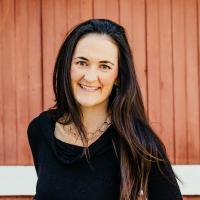Discovering the Roots of Psychology and Psychotherapy from Berlin to Vienna
This program will offer psychology majors the unique opportunity to study foundational concepts in their discipline in the context of the locations where modern psychology began. The program will start with two weeks on the Westmont campus and then continue with four weeks of studying and visiting in Leipzig (site of the first experimental psychology laboratory), Berlin (historic home of Gestalt psychology), Würzburg (location of the Würzburg school of psychology), and Vienna (the birthplace of psychotherapy). Course material will be taught and incorporated with visiting a number of historic locations of psychology and interacting with modern academic psychology programs in Germany. Particular focus will be given to comparison and integration of the Christian faith with both historic and contemporary psychology. Application deadline is November 1.
Our program begins on the Westmont campus, where you will spend two weeks in the classroom taking History and Systems of Psychology and Fundamentals of Clinical and Counseling Psychology. After having established a solid foundation of the history of psychology and psychotherapy, we will travel to Germany, the birthplace of psychology as a psychological science. We will spend three weeks in Germany, exploring Berlin, Leipzig, and Würzburg. In addition to our classroom seminars, we will tour the Berlin Medical History Museum, the Wilhelm Wundt Institute for Psychology (the world’s first Experimental Psychology laboratory), the Würzburg Residence (a UNESCO World Heritage site), and the Adolf-Wuerth Center for the History of Psychology.
Our final ten days will be enjoyed in Vienna, Austria, also known as the city of dreams and the birthplace of psychoanalysis. You will gain insight into the minds of Sigmund Freud, Alfred Adler, and Viktor Frankl – three prominent psychotherapists and founders of classic psychological theories – as you explore their homes and museums.
As part of the program, you will participate in Walking the History of Psychology, which will include extensive walking tours and site visits in Berlin, Leipzig, Würzburg, and Vienna. We will also explore Wittenburg, the hometown of Martin Luther.
Applicants must have successfully completed PSY-001 (General Psychology) and PSY-131 (Abnormal Psychology) and have sophomore status or higher at the end of Spring semester 2025. Applicants are strongly advised to have completed PHI-006 (Philosophical Perspectives) prior to the Mayterm. Applicants from all majors will be considered, but psychology majors will be given higher priority.
All applicants will need to complete an interview with Dr. Gurney.
In addition to the general qualifications above, the following are requirements that must be met, with or without reasonable accommodation, in order to complete all essential elements of the program. All participants must be able to:
- Navigate multiple irregular surfaces and walk up to 6 miles a day with the group
- Navigate carrying personal items including suitcase and/or backpack without assistance.
- Anticipate having sufficient emotional wellness to fully participate in the program safely and successfully despite the limited availability of frequent access to psychological services.
- Anticipate at least double occupancy accommodations in all locations.
History & Systems of Psychology (PSY-111)
The History and Systems of Psychology course is designed to introduce students to major historical figures and historically important systems within the academic discipline of psychology. In addition, this course attempts to place psychology within the context of history, assumptions about knowledge, and perspectives on human behavior (i.e., worldviews). This context will help us to examine the antecedents and development of psychology as a science and come to a systematic understanding of the various perspectives in psychology. We will examine the persistent problems or questions of interest to psychologists, and the dominant paradigms and models operating in contemporary psychology.
Throughout the History and Systems of Psychology course, a consistent theme is the connection and contrast of historic themes and debates in science and psychology as they relate to principles of Christian theology and worldviews. Students engage with these issues in class discussion and through journal writing on each of the 20 sections that are covered in the course. A unique feature of the 2025 Mayterm course is the integration of course material in the actual locations where much of the history of psychology occurred, namely Germany and Austria.
Fundamentals of Clinical and Counseling Psychology (PSY-141)
Fundamentals of Clinical and Counseling Psychology is an upper-division course that introduces students to the major theoretical approaches of clinical psychology. Focus will be on the theories and their founders, including an analysis of the structural components, historical background, and applied clinical methods for each theory. Theoretical applications in a clinical context will be emphasized, and ethical and legal considerations will be taken into account. The course will also explore characteristics of a skilled and effective counselor, as well as some of the basic principles to psychotherapy and counseling. Experiential activities will be utilized to assist students in understanding and implementing counseling approaches.
Studying this material during Mayterm 2025 in Germany and Austria will afford students the opportunity to visit the homes and museums of theorists they are learning, undoubtedly making the course material come alive!
Walking the History of Psychology (PEA-001)
As part of the program, you will participate in Walking the History of Psychology, which will include extensive walking tours of Berlin, Leipzig, Würzburg, and Vienna. We will also explore Wittenburg, the hometown of Martin Luther.
$8,500 (includes tuition, room, full board, travel within Germany and Austria, entrance fees to museums and historic sites). This price includes two weeks of full room and board on the Westmont campus and four weeks in Germany and Austria with double accommodation in 3 or 4 star hotels. Students are responsible for international airfare and additional transportation costs to domestic airports (e.g., LAX).
Meet the Team

Dr. Gurney teaches upper-division courses in clinical psychology at Westmont and devotes the rest of her time to working with individuals, couples, and families in her private practice in the community. Her research and writing interests focus on rebuilding and rethinking the ways we love one another well in our fast-paced, digital world. She has traveled to over 30 countries and deeply believes in experiential learning!

Dr. See has taught courses and conducted research in psychology and neuroscience at various institutions in the US and abroad. His research has included the study of antipsychotic drugs, mechanisms of relapse to drugs of abuse, and depression treatment. He has traveled and lived in over 60 countries and has a passion for history and cultures of the world.









